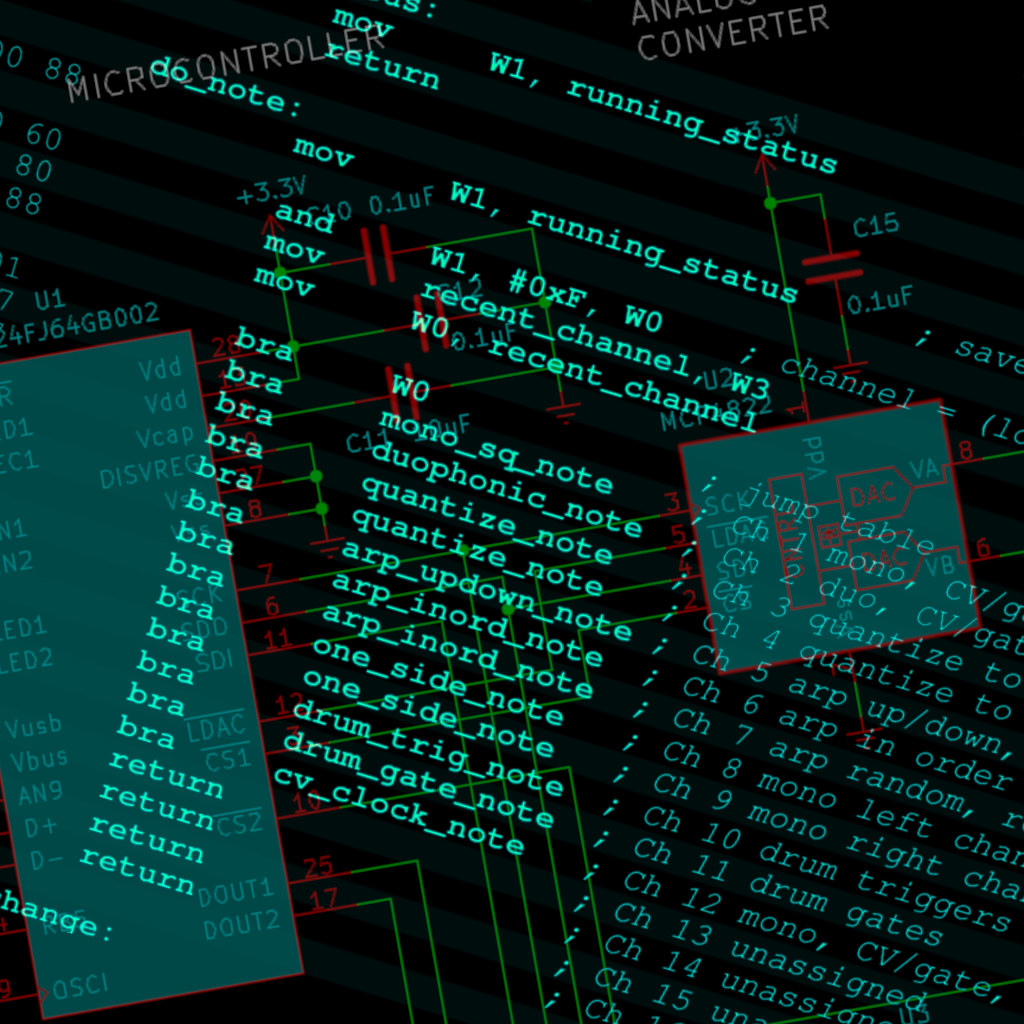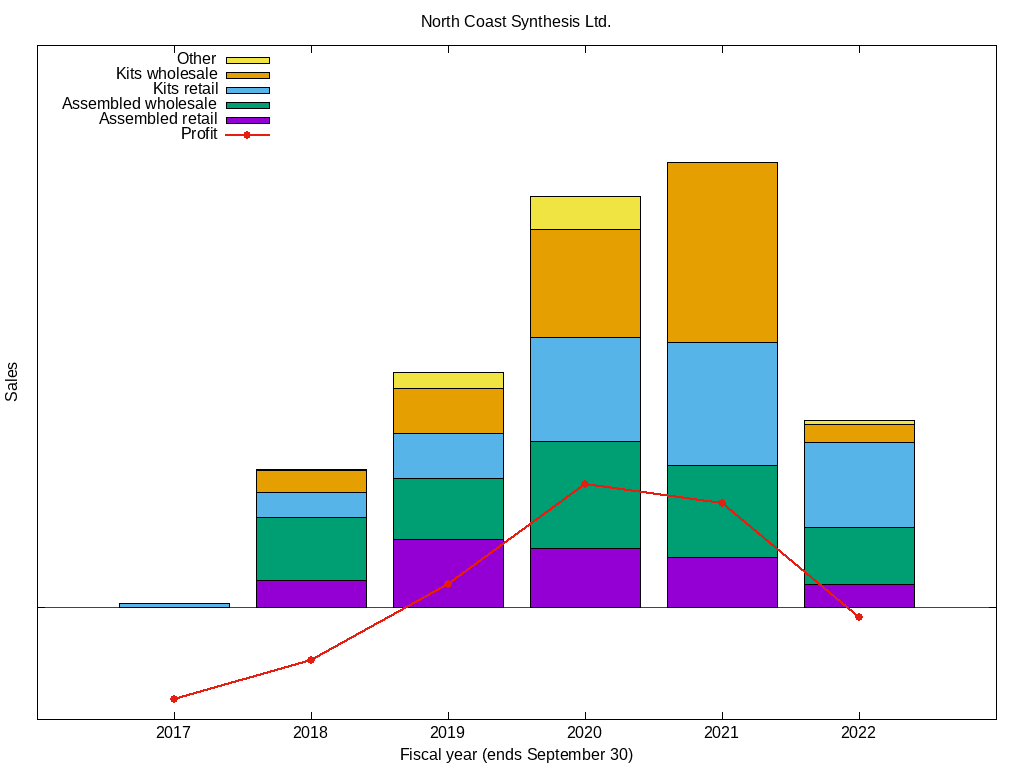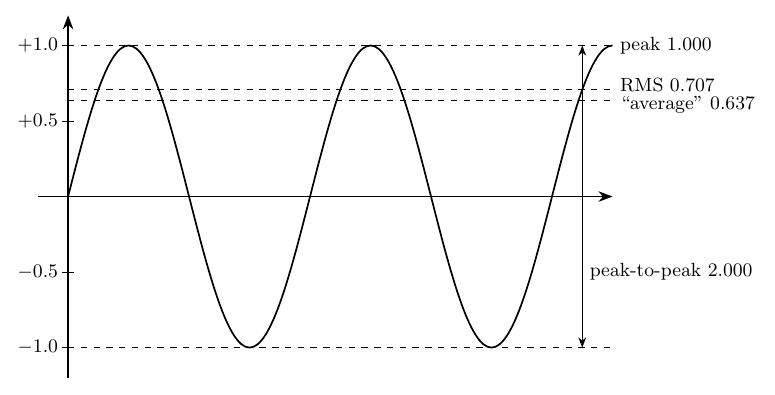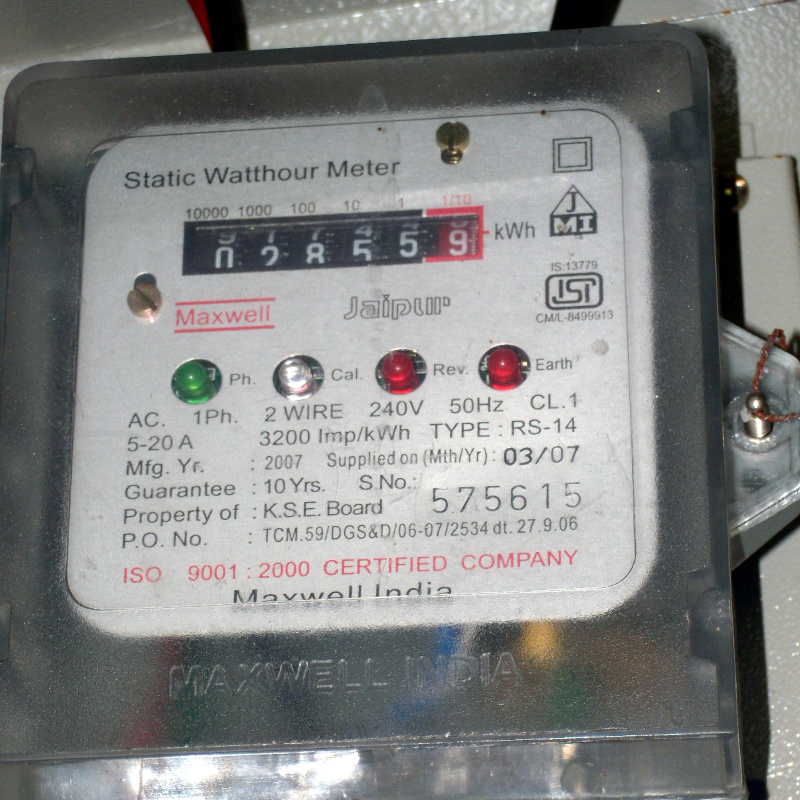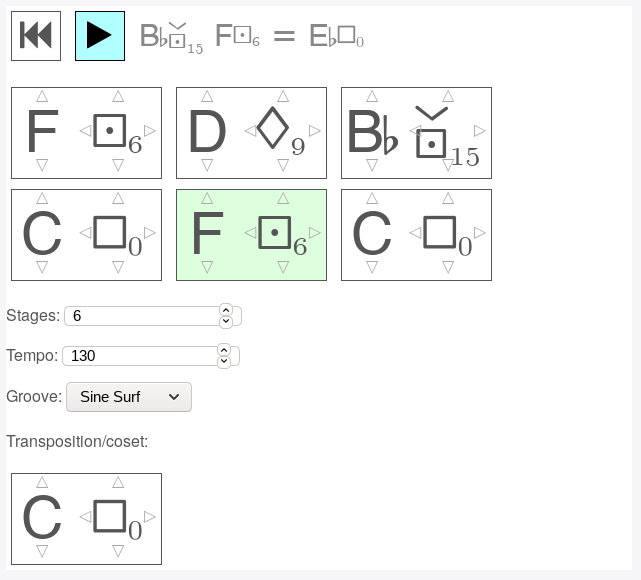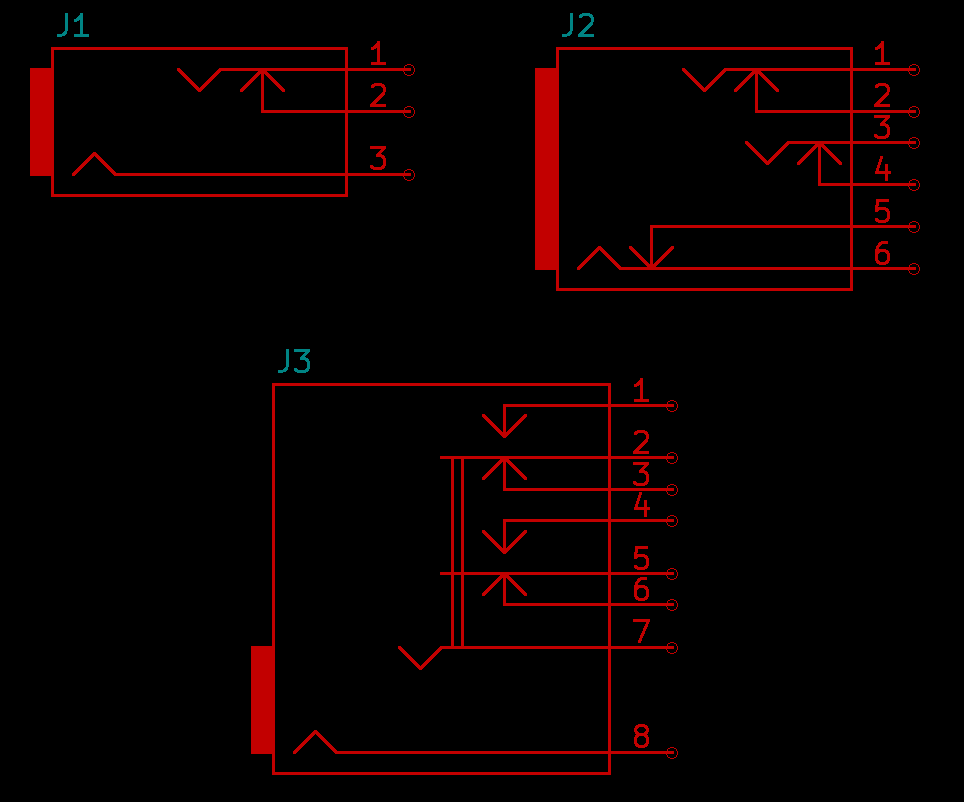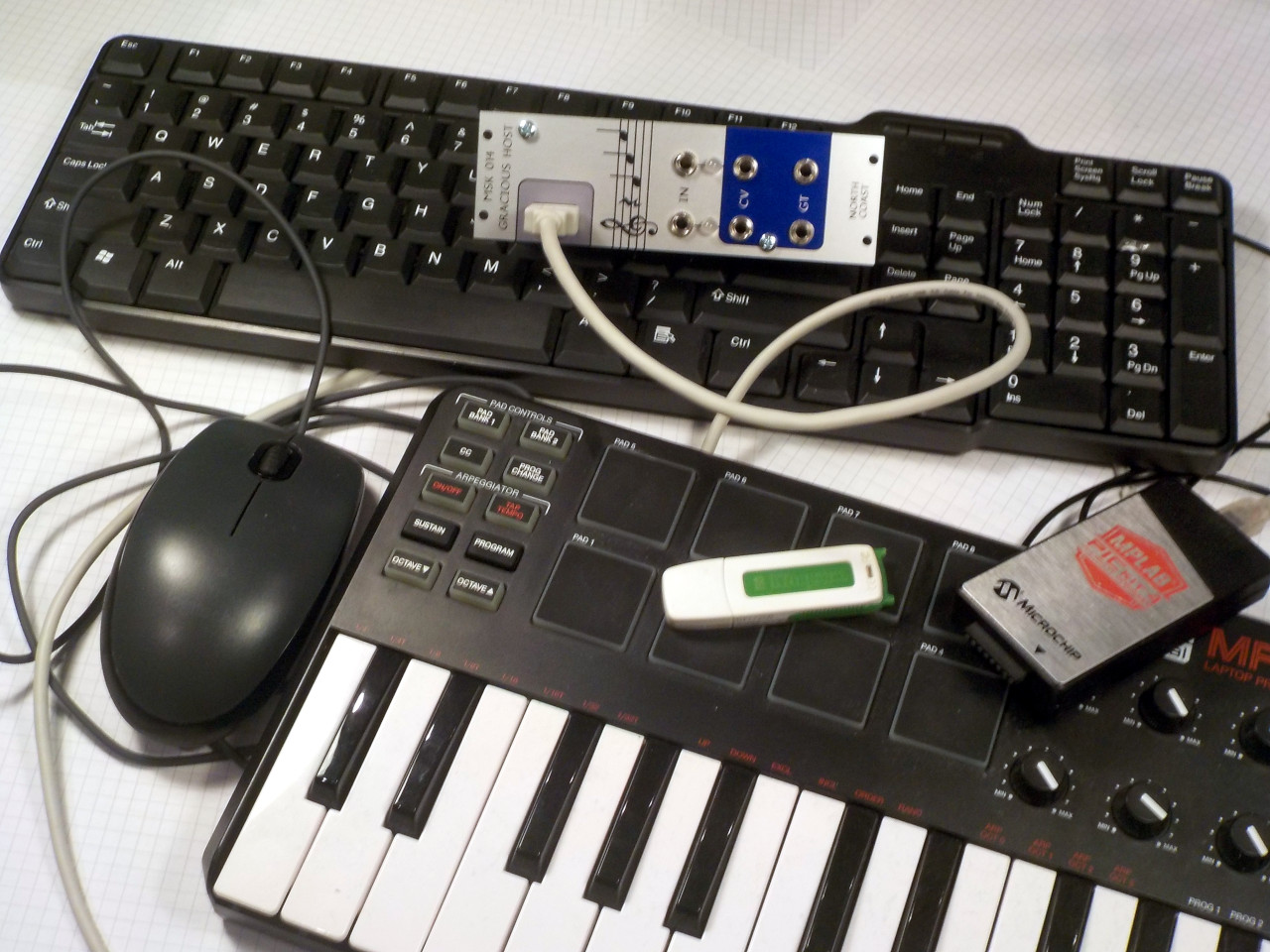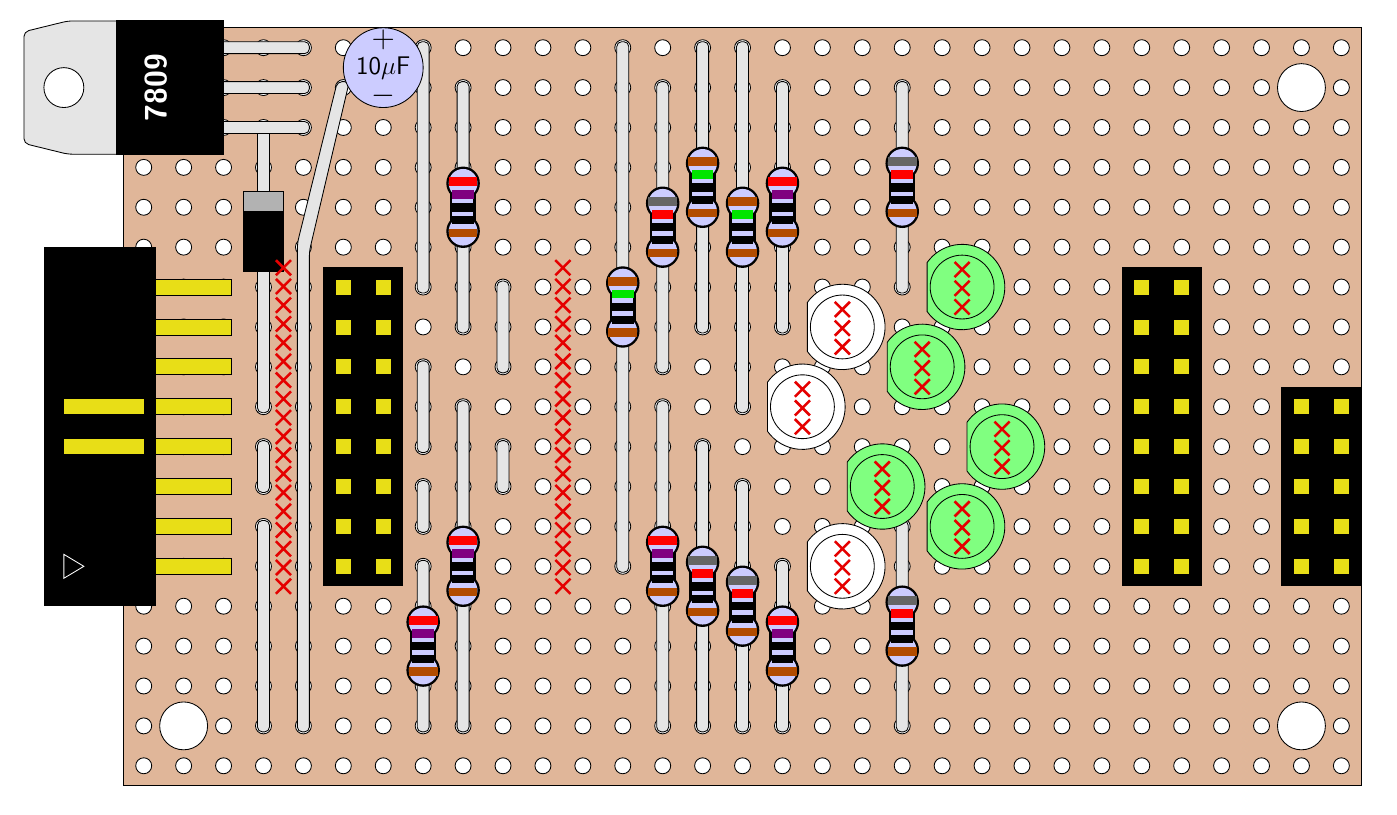AC and DC coupling
I overheard somebody asking about the plusses and minuses of DC coupling, and AC coupling capacitors, and being told to read the detailed explanation of such things I'd written on this Web site. I was flattered to think the speaker found my article helpful, especially because I'd never actually written one about that! READ MORE
New Gracious Host firmware ideas
The MSK 014 Gracious Host can load alternate firmware from me or third parties, just by reading it off an inserted USB flash drive. Although I conceived this module as primarily a MIDI interface with hosting capability, it's really a general purpose hardware platform with Eurorack control voltage input and output, and it could do many other things beyond hosting USB-MIDI controllers. Here are some ideas I've been looking at for possible alternate firmware or features to add to updated versions of the standard firmware. READ MORE
It's the sales, silly!
The industry has lost several important modular manufacturers in the last year or two, and there's been some talk about why. I obviously don't know all the details of what happened in any company except my own, and at least one of the biggest examples on everybody's mind is pretty clearly an exceptional case, with the founder making a career change for personal reasons not directly related to the general business climate. But I recently heard a claim made that it doesn't matter to the health of the industry whether individuals buy Eurorack modules this year because the "real" problem killing manufacturers is supply-chain disruption. I want to speak against that. READ MORE
All about levels
There's a lot of confusion in the modular synth world about signal levels. We often don't have a clear idea of what can plug into what, even within the modular rack; let alone when it comes to interfacing with other equipment. I've been working on guitar pedal designs recently and connections between those and modular often raise level-conversion issues. A whole lot of unnecessary "external input" and "external output" modules are sold to newbie wigglers who've been told that modular and other-equipment levels are fundamentally different and need to be converted - but although usually unnecessary in most modular racks, such modules do also serve useful purposes in certain contexts. What is really going on with signal levels? In this article I'll go through some of the concepts used for describing signal levels accurately, then talk about some of the levels commonly seen in audio work. READ MORE
Power cycling and extra switches
As human beings we're quite familiar with the idea of things wearing out with use. If you hang a piece of clothing up in a closet and seldom wear it, then unless something happens like moths eating it, you can take it out years later and it'll still be good - whereas if you're wearing it every single day and washing it frequently, it may show visible damage and no longer be as good after just a few weeks. Many things in our world are like that, and we naturally expect electronic equipment to be included. Many synth users have, consciously or unconsciously, the idea that for each module there's an hour meter ticking away somewhere, like a car's odometer, measuring the time until the module will die or need servicing, in terms of the number of hours power is applied. READ MORE
Module wear and aging
There's a lot of confusion and worry over the idea that modules wear out or age over time, and what can be done to prevent or deal with that process. It's a part of human life that many things including our own bodies do change with use and time; and if you've spent a lot of money on musical instruments, then it's reasonable you might be worried about wearing them out or hurting them. Electronic equipment and the physics behind it are mysterious to many people. We know that invisible things like "voltage" can possibly damage electronics; it's not obvious what those invisible things are, or where they come from or how to protect the equipment; we have some idea that things in general can wear out, but may be unsure of exactly how that applies to electronics; and so modular users, and especially beginners, end up with a lot of confusion, worry, and misconceptions about wear and aging of equipment. READ MORE
Equivalent circuits
Thinking in terms of equivalent circuits is one of the basic mental skills needed for understanding electronics. I use the concept of an equivalent circuit implicitly in a lot of my writing about other things, but it's probably worth stepping back and learning about equivalent circuits in themselves. READ MORE
Do you really want that scope?
In-rack oscilloscope Eurorack modules come up pretty often on wish lists and ModularGrid fantasy racks. Many people, and especially beginners, seem to think oscilloscope modules are useful, oscilloscope modules may even be must-have modules, and they want those oscilloscope modules. If you are one of those people, I hope you will think carefully before shelling out for an oscilloscope module. They are less valuable for musical performance than you may imagine, and here are some examples pointing at why. READ MORE
A fractal sequencer toy
Here's a fractal chord sequencer you can play right in your browser. READ MORE
All about normalling
If you plug a patch cable into an input jack on a module, the module receives the signal from that cable. What if you don't plug a cable into the input - what will the module do? Let's look into that in detail. READ MORE
Update on the new checkout
Moving the North Coast Synthesis Web storefront to the new checkout system has been a lot slower and more difficult than I planned or expected. There are still some major issues to resolve. But I have some significant progress, and especially with the Gracious Host release held up waiting for a usable checkout, I can't afford to delay rolling out the parts that do work, even though there's still a critical part missing. READ MORE
Leaving BigCommerce
On October 26 I tried to log into the administrative interface of this storefront to process an order, and I just got a blank screen. After some research and testing of my own, and a conversation with BigCommerce technical support, it is apparent that they have changed their systems - suddenly, without warning - to be incompatible with my usual Web browser. They will not be changing back, and they offer no solution for me to be able to log onto the system except telling me I ought to switch to a different version of the browser. That is a dealbreaker for my continued use of BigCommerce and I am moving the North Coast Synthesis Ltd. Web storefront off of BigCommerce as soon as I can. READ MORE
A stripboard Eurorack power cable tester
Here's a little project I put together to solve a specific problem: checking power cables for shorts. I made it using the parts I had on hand, and if you build one yourself you may well end up wanting to make changes, so I'm not going to prepare a complete set of documentation or sell kits or anything. I don't think it's going to be popular enough for selling them to be profitable. But if, like me, you're in a position of needing to check a lot of power cables, you might find these notes useful in designing your own tester. READ MORE
Fat sounds and thick pads
From time to time we hear people claim that one synthesizer sounds more "fat" than another. For the sound to be fat is supposed to be a good thing. This is often cited as an advantage of analog synths over digital; or of one analog synth over another. Somehow it always seems to be the most expensive equipment that sounds fattest. READ MORE

